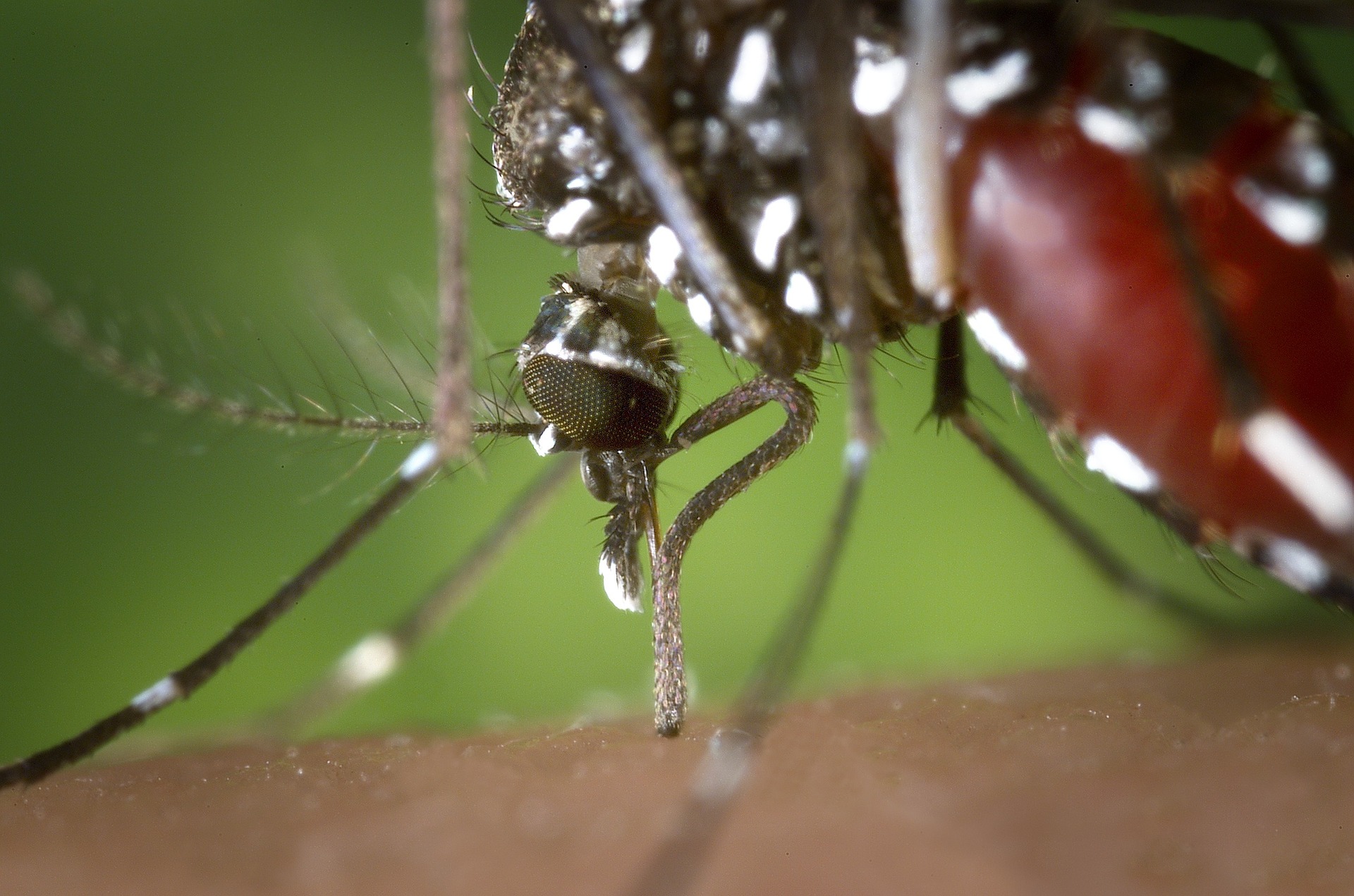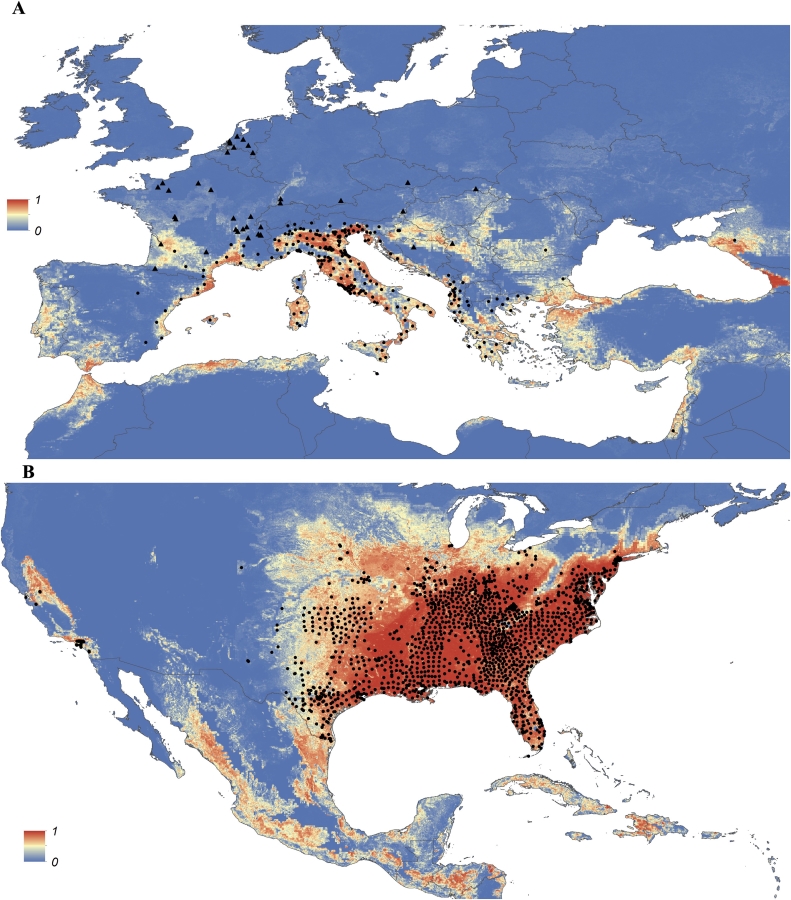- by Alison
New dengue treatments needed to fight Asian tiger mosquito

New dengue treatments are required to keep up with the evolving dengue threat, which some fear could hit Europe and the US. As the Asian tiger mosquito spreads the disease to colder climes, the co-founders of Effecta Pharma explain their efforts to tackle the problem today.
The extent to which dengue infection has advanced over the past few decades has been phenomenal. Most of this spread has been down to the Aedes aegypti mosquito. This primary dengue vector thrives in tropical and sub-tropical climates but struggles to survive in cooler temperatures.
While we’ve previously raised concerns about how climate change might allow this vector to spread further afield in the future, we haven’t considered the threat from its cousin and secondary dengue vector: Aedes albopictus.
Aedes Albopictus: partner in crime
Also known as the ‘Asian tiger mosquito’, Aedes albopictus, though native to the same regions as its cousin, has successfully adapted to thrive in cooler, more temperate regions. Here it hibernates over the winter months and can even tolerate snow and freezing temperatures.
According to the European Centre for Disease Control (ECDC), the Asian tiger mosquito has already reached more than 25 countries in Europe, largely because of international trade and infected travellers returning home from endemic regions: “The presence of Aedes albopictus in Europe and the increasing number of overseas travellers may increase the risk of dengue outbreaks in Europe”.
ECDC believes climate change could further increase the distribution of the Asian tiger mosquito and enhance the risk of dengue in temperate regions. This is confirmed by a recent eLIFE study that highlighted the mosquito’s potential to spread across Europe and the Americas.

Images via elifesciences.org
The maps in figure 1 show the study’s predictions on the probability that Aedes albopictus will appear in Europe (A) and the United States (B) – red being 100%. It notes that these are “regions in which Aedes albopictus is rapidly expanding its range”.
“Dengue has and will continue to spread to the West and become a significant problem in the future,” says Dr. Paul Edwards, co-founder of Effecta Pharma, a UK-based biotechnology company dedicated to the discovery and development of novel medicines to treat viral diseases.
Effecta is focussed on developing antivirals for treating dengue and other flaviviruses (a genus of virus that also includes the West Nile virus, Yellow fever, and Zika virus).
A new treatment?
Dr. Edwards believes that given the time it takes to discover and develop new drugs, now is the time for the West to act so that a treatment is in trials or ready on the market for when those epidemics happen. Any novel treatments developed would not only stop dengue becoming endemic in Europe and North America, they would also help in the fight against dengue in the warmer regions where it is already endemic.
“Currently, there are no therapeutics for dengue virus infection on the market,” says Dr. Helmuth van Es, co-founder of Effecta Pharma. “There is a real need for an effective and safe treatment.”
Effecta’s dengue drug discovery program aims to identify a safe and effective drug that can be used to treat dengue, possibly in combination with other classes of dengue antiviral drugs. “We’re looking to treat all dengue serotypes within five days of onset of symptoms,” says Dr van Es.
The team at Effecta are also hoping to develop a ‘direct acting antiviral’ pill that the local population could take in the first few weeks of an outbreak, to protect themselves against the virus. Although this hasn’t yet been proven in practice, Effecta has spoken with experts in the field and these researchers believe that the potential for developing this type of proactive treatment is there.
Early stages of a new dengue treatment
Effecta is still in the early stages of drug discovery in this area and is currently seeking partnerships and funds to take it to the next stage.
A collaboration with the European Lead Factory (ELF) has produced some potential ‘hit compounds’ (hits from a high throughput screen (HTS) that have been evaluated as promising lead compounds – chemical compounds that show pharmacological or biological activity likely to be therapeutically useful). It’s still early days, but Effecta is hoping these chemical starting points will result in preclinical candidate drugs that will one day be tested in a clinical proof of concept study in patients
In parallel, Effecta’s dengue drug discovery program has also been studying the dengue virus NS5 protein that studies have shown plays a key role in the virus being able to replicate itself. Understanding the structure of this protein is critical to identifying a chemical compound that can act on it. Effecta has been looking for ‘pockets’ that a drug could bind to in order to hinder this replication and, in doing so, produce an antiviral effect. This phase was funded by the Wellcome Trust. Now almost complete, it resulted in additional chemical starting points for drug discovery and development.
As dengue continues to spread across the global – with global trade, climate change and the evolution of the Asian tiger mosquito giving it a further boost – are we doing enough to combat the disease? The development of new drugs today and new dengue treatments for tomorrow are critical to combating the ever-evolving threat posed by dengue and its vectors.
—
Click below to begin mapping dengue from your smartphone.

